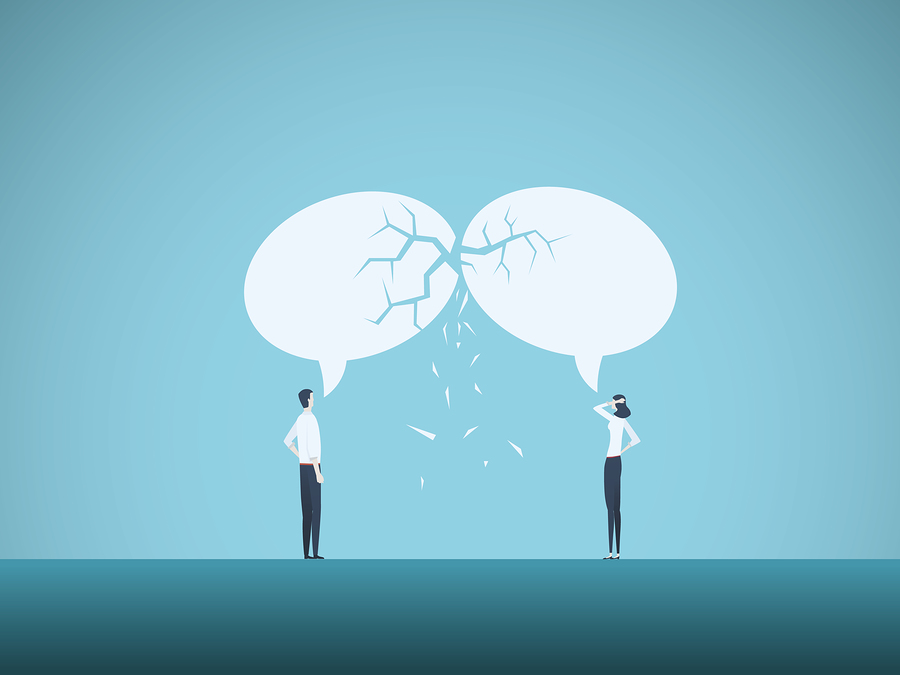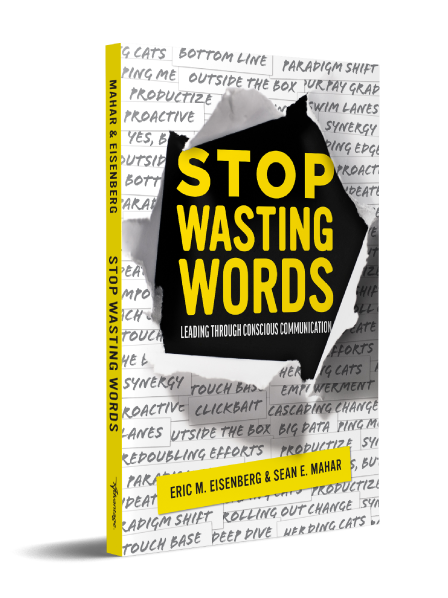You’ve been communicating in one way or another your entire life. When you think about it, you realize there are many ways to communicate—and those methods have changed as you grew from an infant to an adult. What worked when you were a toddler or a middle schooler might not be appropriate as a professional; as you can probably guess, our communication stance grows along with us. But in many cases, adults stop evolving their communication style, often to their detriment. In this article, we’ll examine the top four barriers to effective communication.
1. No desire to change or improve
People have the capacity to be skillful in many areas, but communication often isn’t one of them. No matter how intelligent or experienced the individual, many otherwise brilliant individuals can be quite poor at communication. Oftentimes, these are the same people who are confident or even proud of their so-called communication skills.
It’s not terribly challenging to identify those who believe they’re always right because they’re always right; those who identify others as the sources of problems. These individuals attempt to validate their own skills with little interest in examining their impact on others. They are not likely to seek out self-improvement because they don’t feel they need it.
2. Lack of self-knowledge
In our book, we say “A willingness to get to know oneself better is the first and most important step on the leadership journey.” As a small part of a big world, there are literally more things you don’t know than those you do. But in order to grow as a person, we must be willing to admit that there are things we do not know about ourselves.
Acknowledging that you don’t know what you don’t know creates a foundation of humility that is essential for making any lasting improvement—whether it’s self-knowledge or any other kind of knowledge. If you’re unwilling to entertain the possibility that you may have significant blind spots about yourself, have you fallen into the “no desire to change or improve” category? If not, be willing to be humbled as a means for becoming a better person.
3. Failure to check for grasping
Dumping a bunch of words on others is not communicating. You don’t want to just deliver your message; you want the audience to receive your message. Repeating the same information many times doesn’t guarantee your audience grasped your message.
Those who don’t bother to check to make sure their audience has understood the message aren’t communicating. They aren’t observing body language or facial expressions that indicate hesitation or confusion, and they aren’t open to being interrupted for questions to mitigate potential misunderstandings or disagreements.
4. Only considering one option
Have you ever wondered how you contribute to your own communication style? Many people have no clue that their own behavior is a likely cause for poor communication and troubles with other people. As soon as they settle on a plausible theory, they find no reason to look any further.
The fifth barrier to effective communication is failing to ask yourself questions about your responsibility. These are questions like:
- “I wonder if there is something in the way that I am communicating my priorities that is making my communication less effective than it could be.”
- “I wonder if I missed part of the underlying problem.”
- “I wonder if my team was given all the instructions that they needed to learn the new system.”
- “I wonder if we could have done something different or better to support this patient when he was sent home.”
Conclusion
Earlier we mentioned that the ways we communicated as a toddler or middle schooler aren’t necessarily appropriate as adults—but humble yourself for a moment and think of a few times where you did just that. Did you achieve the desired outcome? If not, consider how you can eliminate these four barriers to more effectively communicate with your communication style.

